Overcrowding, drug misuse and violence: A journey through the prison system in numbers
In light of new figures exposing the crisis in the justice, Jabed Ahmed takes a look at what they tell us about the prison experience

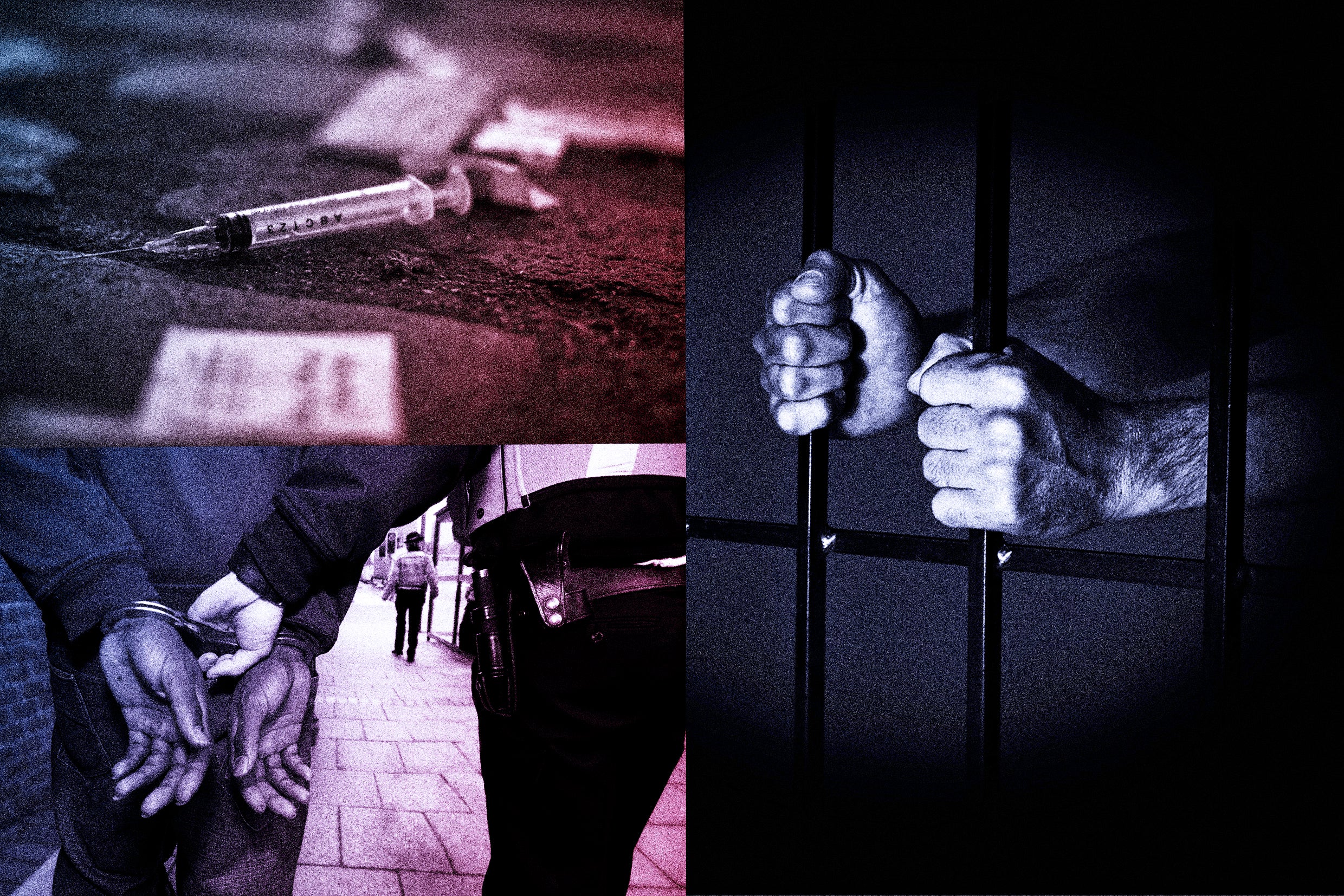
Prisons across the country are in a deep state of crisis – the extent of which is exposed by the latest statistics.
Soaring rates of violence, self-harm and drug misuse have become widespread in overcrowded prisons in England and Wales.
The prison population remains “within a few hundred places of collapse”, according to the new justice secretary Shabana Mahmood, as overcrowding in prisons increases for the third year in a row.
The far-right riots this summer have added further pressure to the crisis-struck system, with police already arresting nearly 500 people. Sir Keir Starmer’s government has announced plans to make more than 500 new prison places available to deal with rioters.
However, the crisis in the system doesn’t stop with a bursting population – there are high rates of homelessness for ex-offenders and probation services across the country are rated as inadequate.
Campaigners warn that exposing inmates to violence and mental distress will be detrimental to efforts to rehabilitate them.
The scale of the chaos in UK prisons begins in young offender institutes, where there has been a substantial increase in self-harm and violence, according to the latest figures.
Children and Young People Secure Estates
Violence
There were 510 incidents of assault in youth offender institutes from January to March this year – a 10 per cent increase on last year. These involved 386 different children as assailants.
There were 224 assaults on staff and 38 incidents of serious violence, including sexual offences, stabbings, burns, extensive bruising and fractures.
Children aged 15 were the age group most likely to resort to violence. Children aged 10 to 14 were disproportionately victims of assault in children and young people’s secure estate.
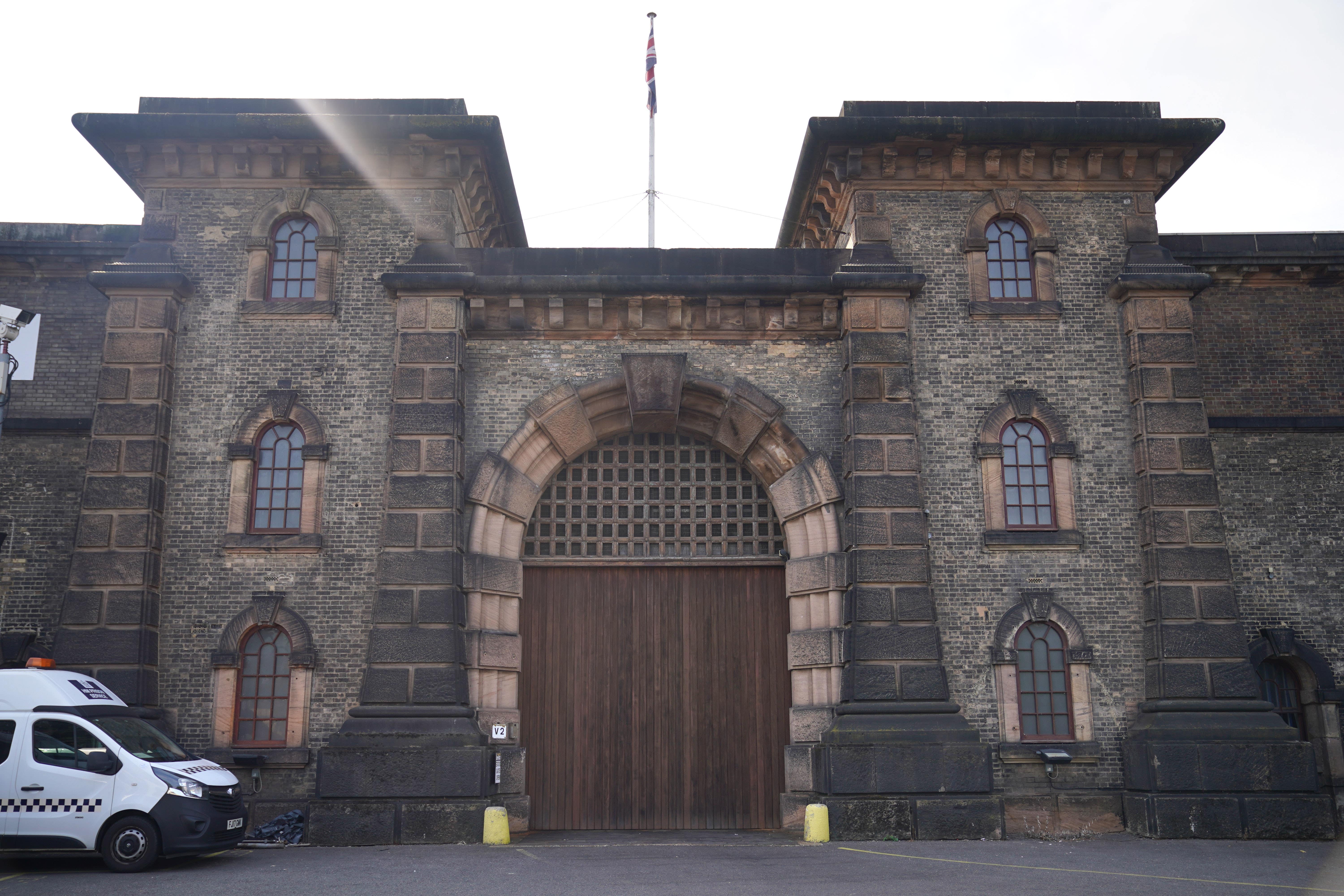
Self-harm
From January to March 2024, there were 558 incidents of self-harm involving 89 different children in the prison estates – an increase of 119 per cent compared to the same period last year. The rate of incidents is influenced by small numbers of individuals self-harming multiple times.
Nearly a quarter of incidents resulted in an injury requiring treatment, and 4 per cent required hospital attendance. Despite accounting for less than 2 per cent of the total population, girls were responsible for more than half of all self-harm incidents.
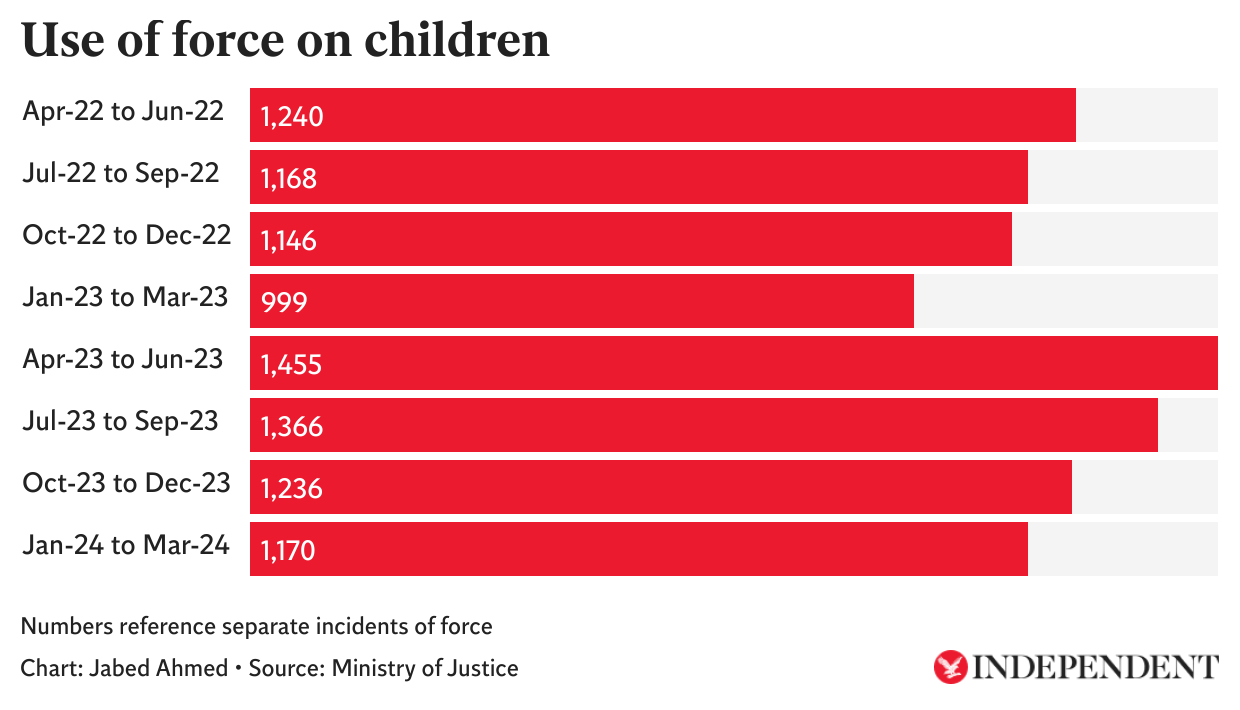
Adult prisons
Overcrowding
There was an increase in the prison population this year, with 87,726 people in prison on 30 June 2024. This is around 4,700 higher than pre-pandemic levels.
Overcrowding in prisons also increased for the third year in a row, with nearly a quarter of prisoners held in crowded accommodation compared with 23 per cent in the previous 12-month period.
Crowding is measured as the number of prisoners who, on the last day of the month, are held in a room where the number of occupants exceeds the normal figure.
Violence
The number of prison assaults increased by nearly a third in the last year – reaching a post-Covid pandemic high of 28,292 violent assaults in the past 12 months.
The number of incidents in female establishments increased by 36 per cent to 1,917 incidents in the same period, while violence in male prisons increased by more than a quarter to 26,375. Assault rates have been higher in female establishments than in male establishments since 2019.
There were 18,788 prisoner-on-prisoner assaults in the year ending March, and there was a new peak of 9,847 assaults on staff. This includes 3,215 incidents of serious violence.
Self-harm
The rates of self-harm in adult prisons have hit their highest level since records began, with 73,804 incidents of self-harm taking place in the last year – a rate of one prisoner hurting themselves every seven minutes. This amounts to 852 incidents per 1,000 prisoners.
The number of self-harm incidents requiring hospital attendance increased by nearly a quarter, with the rate of self-harm in female prisons more than eight times higher than in the male estate.
Drugs and weapons
In the last year, drugs were found in prisons 21,145 times – an increase of 44 per cent from 14,724 in the previous 12-month period. There was a 37 per cent increase in the number of Class B drugs, such as cannabis and ketamine, being found and the number of psychoactive substances found has increased by 86 per cent compared to last year.
Weapons were found in prisons on 9,400 separate occasions – an increase of 24 per cent compared to the previous year.
In the 12 months to March 2024, there were 10,669 incidents where mobile phones were found in prisons – an increase of 36 per cent.
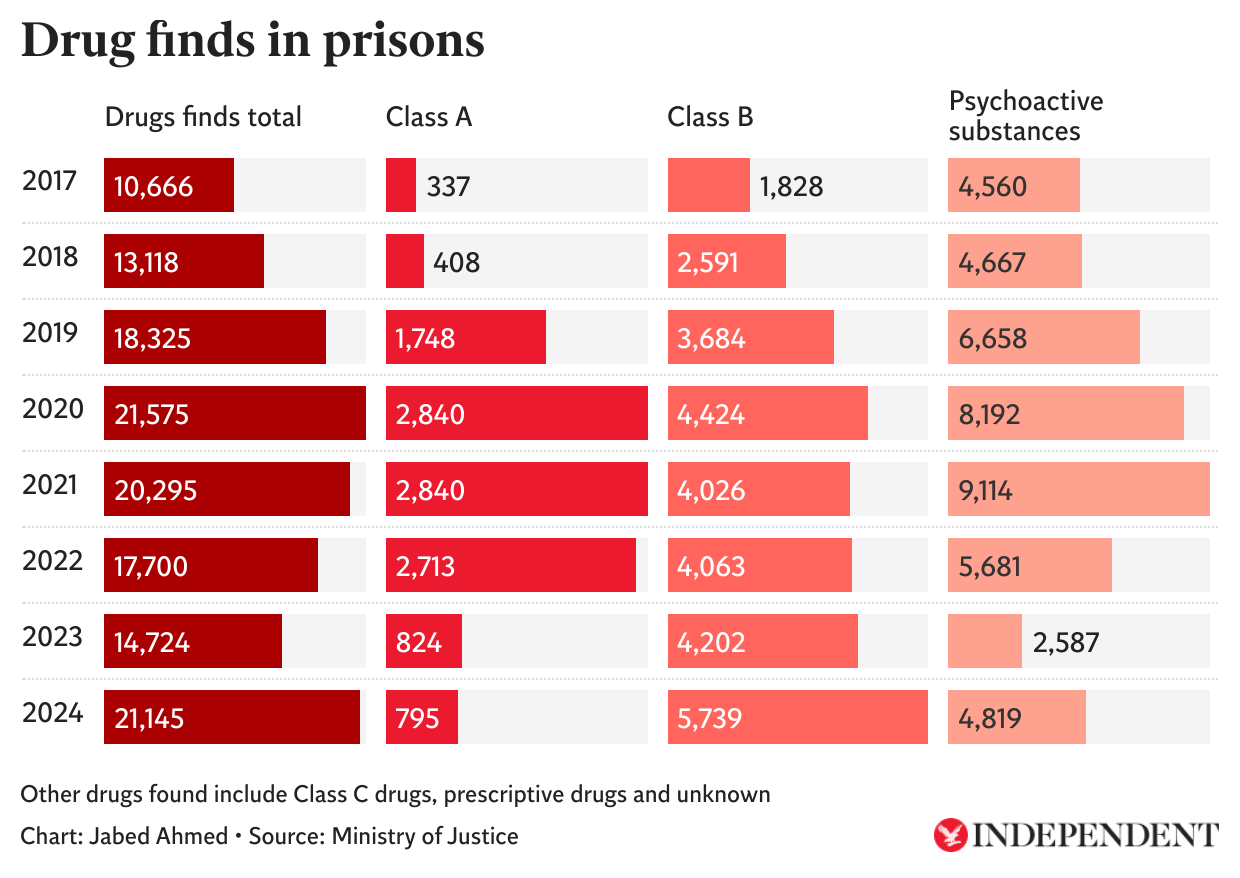
Protests
In the 12 months to March 2024, there were 1,827 incidents of prisons barricading themselves to prevent access from officers. There were also 58 incidents where prisoners took someone hostage – a large majority (54 incidents) involved prisoners as hostages.
Life after prison
Homelessness
There has been a 12 per cent increase in the number of people being released from prison in the past year, from 62,345 to 70,040. The number of people leaving jail into homelessness has risen from 7,055 to 9,210 – an increase of more than a third.
On average, about 800 people per month go straight from prison into homelessness. This includes a 48 per cent increase of women who are rough sleeping – increasing from 445 to 660 in the past year.
Reoffending and employment
Adult convicts have a proven reoffending rate of 26 per cent, while a third of younger prisoners re-offend. This increases for adults released from custodial sentences of less than 12 months at 57 per cent. In total, re-offenders committed almost 82,000 reoffences over a one-year follow-up period.
In the year to March 2024, 80 per cent of offenders released from custody were unemployed after six weeks. This decreases to 69 per cent after six months. Offenders serving longer custodial sentences have better employment chances.
Higher employment rates of offenders who have served a custodial sentence were generally seen among Asian or Asian British ethnic groups.
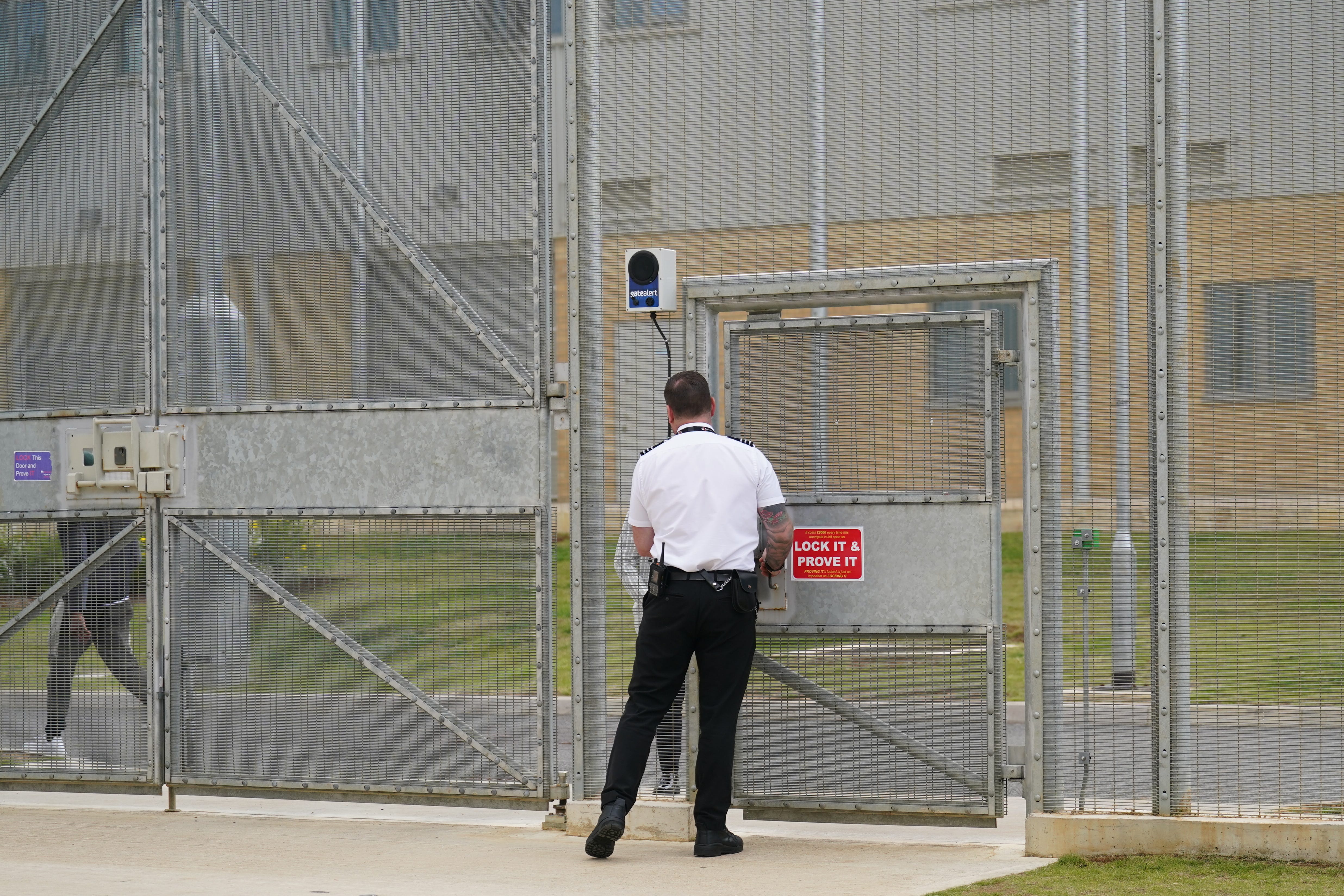
‘Human misery behind bars’
Andrea Coomber KC, chief executive of the Howard League for Penal Reform, said: “These shocking statistics tell us why the new government was absolutely right to take steps to ease pressure on the prison population, and why further action will be needed to change prisons for the better.”
“These figures remind us that there is a crisis of human misery behind bars too,” she added.
“Exposing people to environments of rising violence and mental distress will do nothing to turn their lives around and away from crime. This is exactly why the prime minister was correct to describe the prison system as ‘broken’.”
Justice secretary Shabana Mahmood KC said: “Our prisons are in crisis, leading to endemic violence and harm behind bars.
“These statistics reveal what is really happening inside jails today, and why we had no choice but to act. This government will always protect the public, lock up dangerous offenders, and make prisons safe for prisoners and the brave staff who work there.”
This month, the government announced £100m to improve HMP Wandsworth after a damning inspection report found high rates of self-harm, dangerous levels of violence and nearly 50 per cent of prisoners taking drugs.
Subscribe to Independent Premium to bookmark this article
Want to bookmark your favourite articles and stories to read or reference later? Start your Independent Premium subscription today.

Join our commenting forum
Join thought-provoking conversations, follow other Independent readers and see their replies
Comments